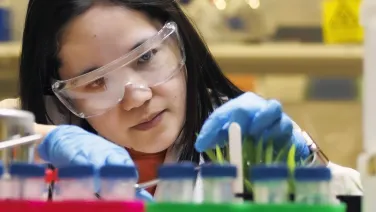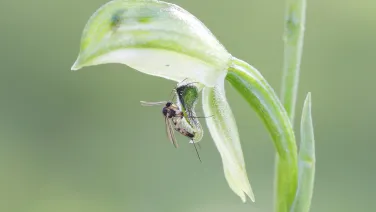
Plant genetics and gene regulation
ANU uses molecular genetics to study gene regulation, epigenetics, and gene/protein functions, focusing on plant development, pathogen interactions, and energy biology.
About
Genome content and the regulation of gene expression are crucial for plant development, form & function. At ANU we use molecular genetics to understand gene regulation, epigenetic control processes, evolution and gene/protein function. These approaches are used to study such problems as organ development, plant-pathogen interactions & plant energy biology.




















